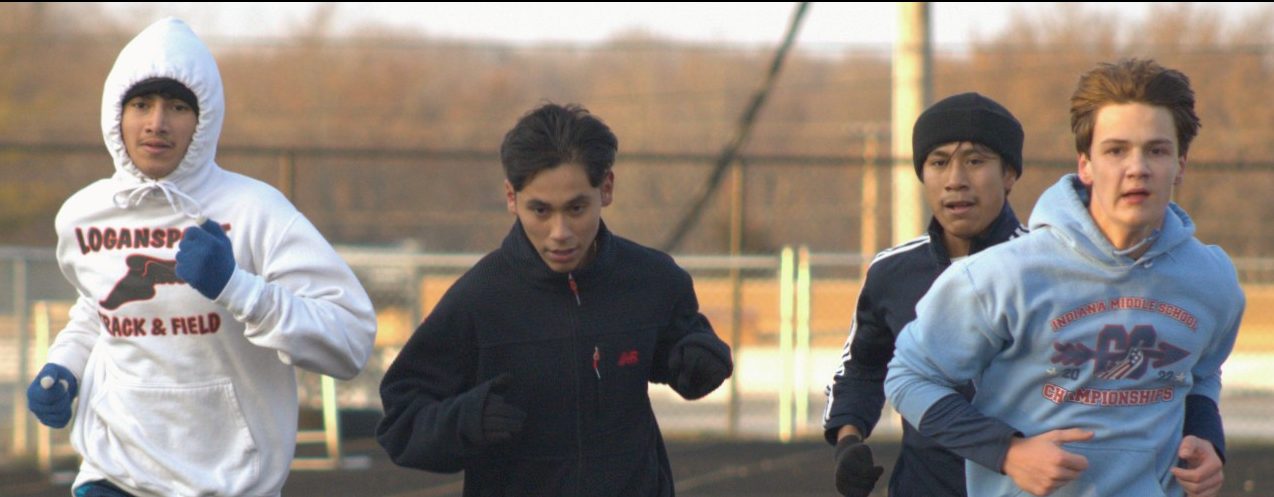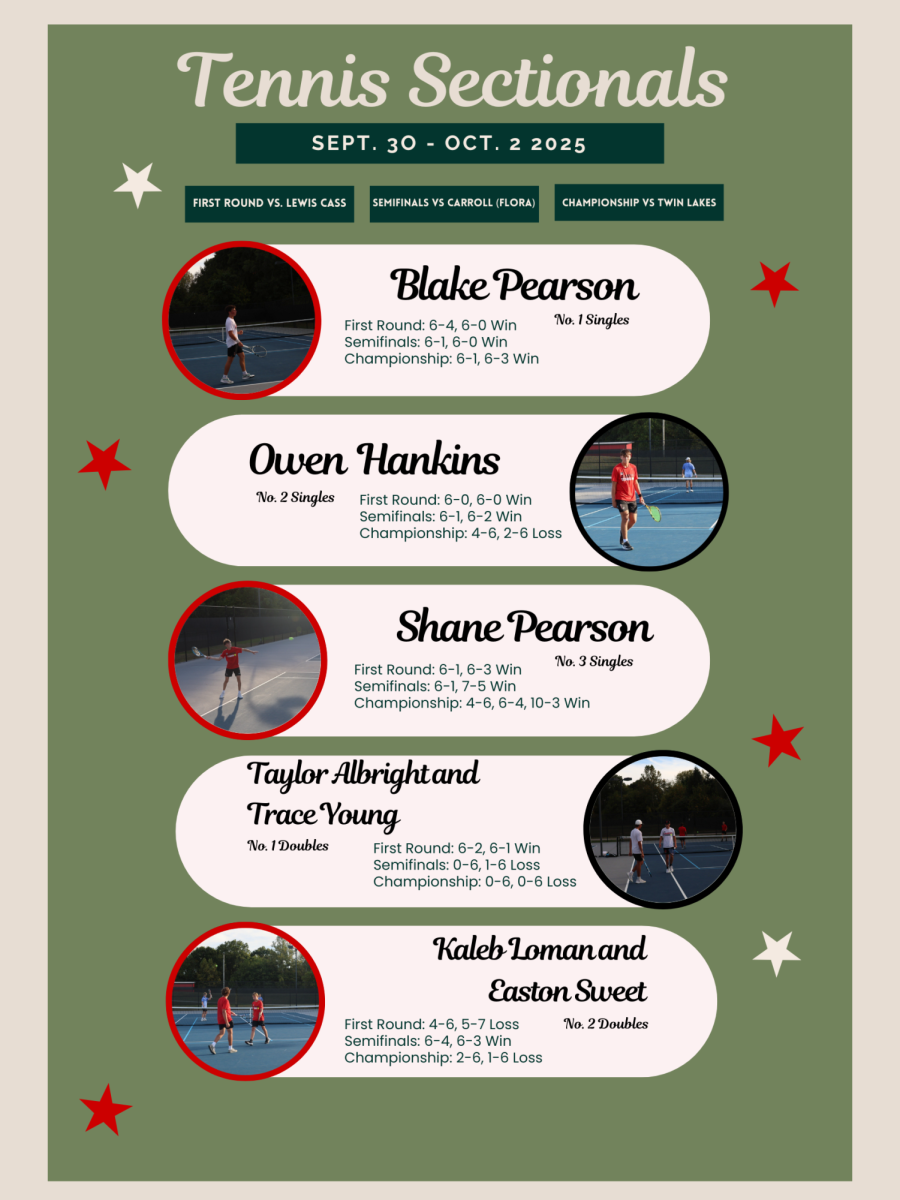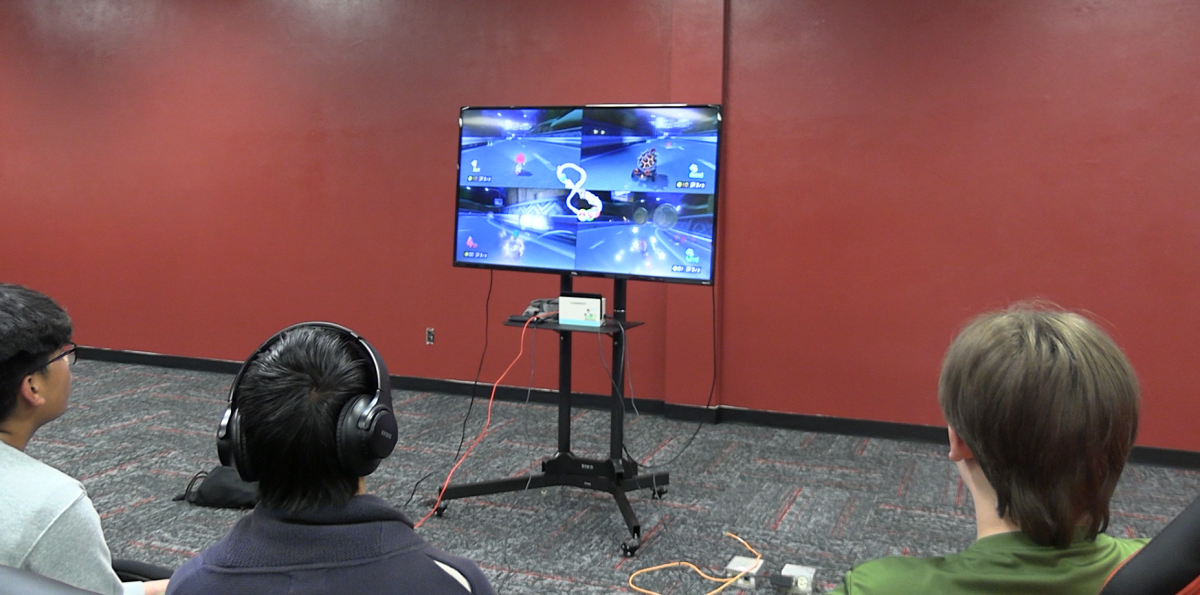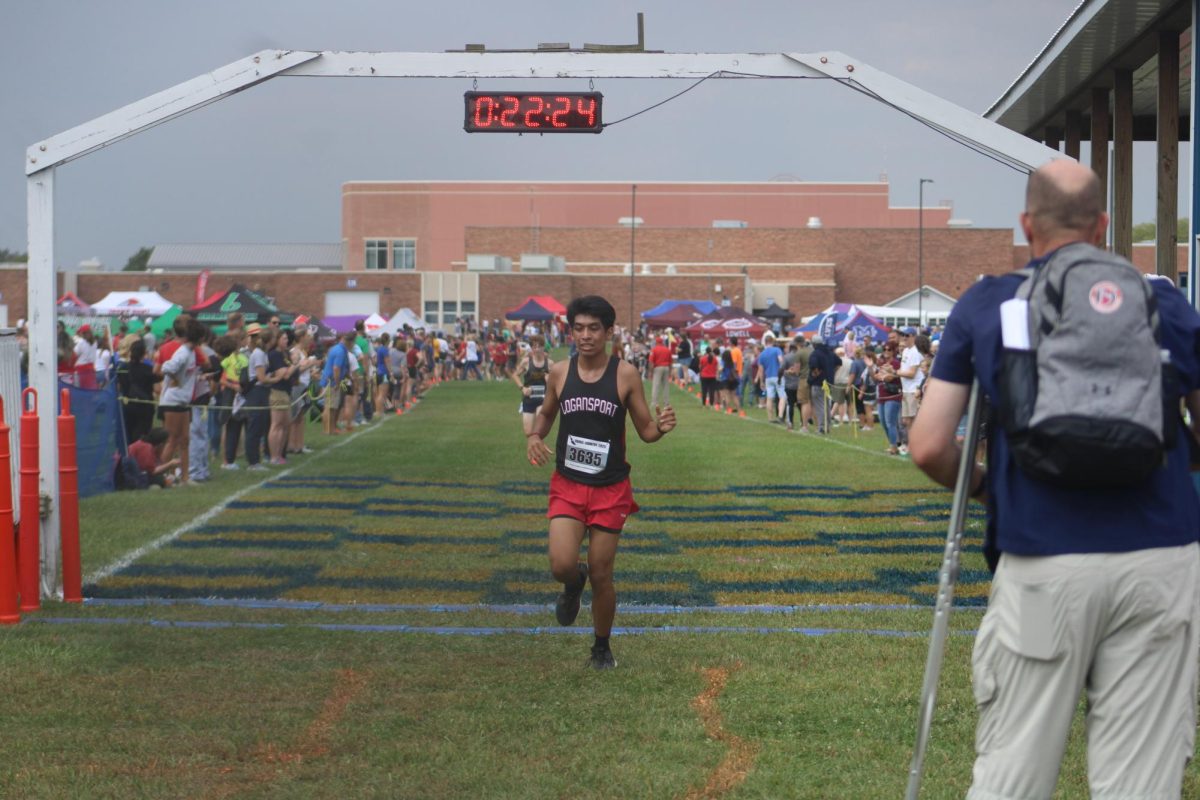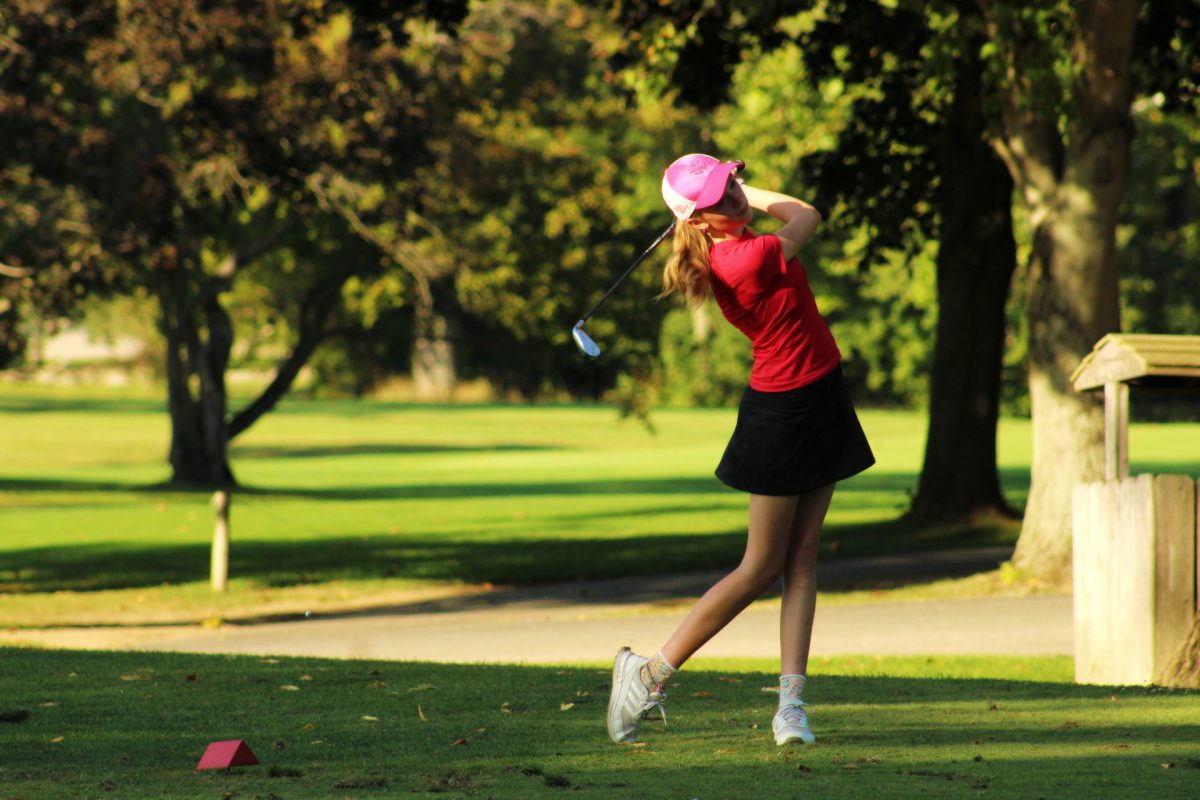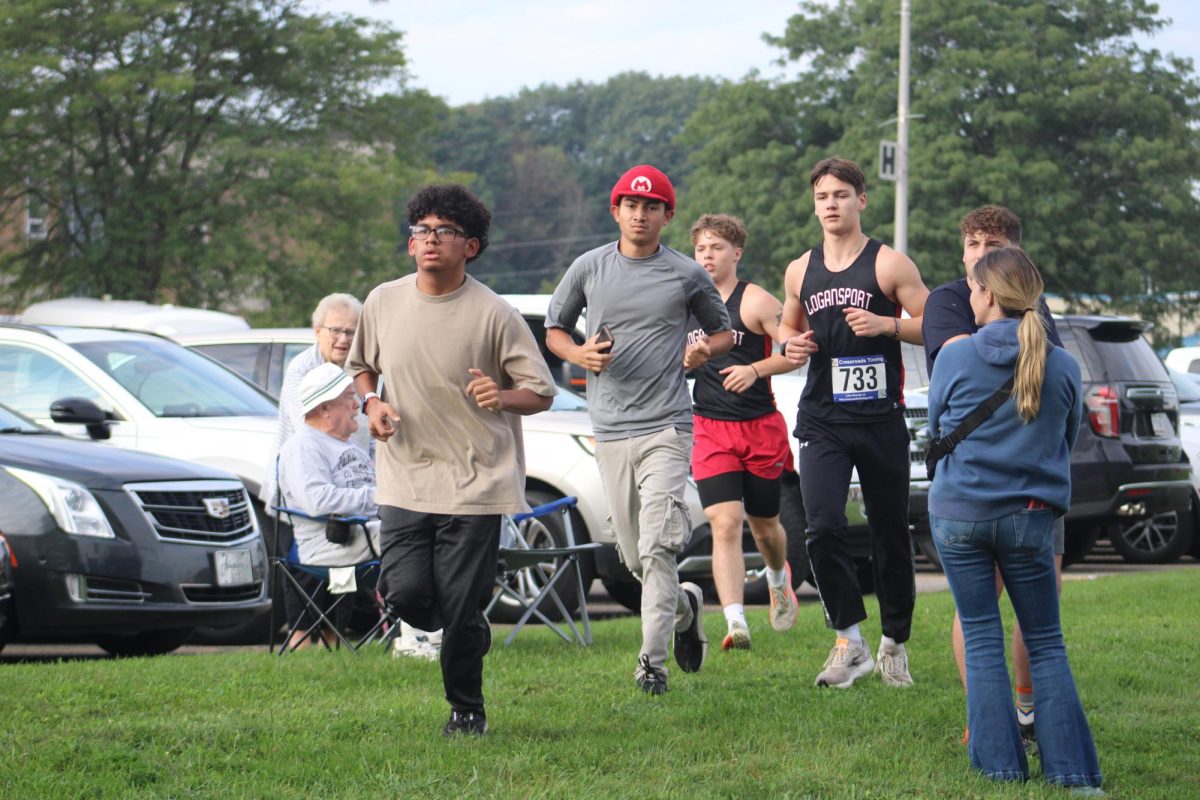Why do you think conditioning is important for athletes?
Head Track Coach Brian Morrill: For endurance athletes, it’s everything. Our distance runners are all about conditioning. We don’t use a ball. We don’t use a racket. It’s just physical conditioning, and we have to gradually build that up.
Now in other sports, like football or basketball, there are a lot more skills to learn like throwing and shooting the ball. So, conditioning is important for those sports, or else they’ll run out of gas by the end of the game. Swimming is different too, but they’re still training their heart and trying to improve their form. It’s really everything. If you’re not in good condition, you’re not going to be very successful.
Head Swim Coach Michael Shannon: It’s to prevent injuries, especially with swimming. Swimmers have really bad shoulder injuries, and a lot of that has to do with how much strength they have in their shoulders. So, if you have strong shoulders, you’re able to pull that water through to pull yourself through the water a lot easier. Injury prevention is number one. A lot of the injuries we see with the shoulders can result from poor technique. With swimming, you have to “catch your pull,” push the water back and lead with your fingertips. Number two, it has a lot to do with your performance in the pool. If you’re stronger and healthier, then you’re going to have a better result in the end.
Junior Ashley Murillo: I think conditioning is important for athletes who aren’t in a current sport. If you have the time to start conditioning, it would be beneficial not just for them but for their teammates as well.
Should athletes who don’t condition start conditioning?
Morrill: If they want to perform at their peak and be at a high level, they definitely need to condition, especially in the off-season. Every sport has an off-season, and that’s when an athlete should work on their skills and conditioning, whether it be in the weight room or out running more miles. It’s going to put a conditioning base underneath each of our athletes so that we can build on that as we get closer to the competition. If we don’t have that good conditioning base underneath us, then we’re more likely to get injured and less likely to perform well since we don’t have a good foundation of conditioning beneath us.
Shannon: Absolutely, and not just athletes either. Think about it, getting up and moving, and getting yourself physically fit will make you feel better not only physically, but mentally. The work I was doing in the sheriff’s department has made me experience the high stress, high speed and low drag type of situations. I was one of two in the department that was not on high blood pressure medicine. The reason was that I was getting into triathlons again. I was riding my bike, running and swimming consistently. That was my outlet.
A lot of times what people will do is just sit there and feel like they don’t have anywhere to go, so they kind of just sit down and do nothing. If you sit down and do nothing, you’ll make yourself feel even worse. You can’t just do something once a week and expect yourself to perform that way when the time comes. It’s just like studying and reading. You have to keep doing it. If you don’t use it, you’ll lose it. If you don’t train your body mentally and physically for the task at hand, it’s just going to hurt.
Junior Micah Rogers: Yes, any athlete who isn’t conditioning should start. It makes an existential difference in your performance in your athletics. I feel so much more flexible and have more endurance than most other athletes who don’t condition, and I believe conditioning has played a major role in that.
Do you see a difference between athletes who condition and those who don’t?
Morrill: You can see it every day, especially in distance running. We have athletes who start and stop, so they’ll get in shape. When their season is over, they’ll stop. Then, when they start back up for the next season. If they haven’t done anything in between, it’s like they’re back to square one. They get better during the season, but then, their conditioning slips, and they’re back to square one. Ideally, I think coaches like to see that conditioning maintain itself year-round, and that is how you prevent yourself from going back again. You can just take off from where you are. You can get stronger, faster and all sorts of other things. Plus, it’s kind of frustrating knowing you have to start over every time.
Shannon: The short answer is yes. Obviously, we have great talent and we have not-so-great talent. Although, I will take hard work and discipline over somebody who has talent and doesn’t work as hard. To me, the work ethic has everything to do with it. You could be so talented and so lazy at practice, and all of that will relate to your meet, but if you’re a hard worker, disciplined and coachable, what will happen is you will keep succeeding far more than those who are talented. Swimming is a unique sport because it’s just like running. It’s an individual team sport. You’re going to get out of it what you put into it.
What does conditioning do for your particular sport?
Morrill: If you know you’re in good shape, then it makes for a more confident athlete. Confidence is the mental part of sports, and it’s sometimes not given as much credence as it should. I’d much rather have an athlete go to the starting line feeling fit, confident and knowing that they’ve already put the work in to be able to run a good race.
There’s no faking it in distance running. You’re either in shape or not, and you can’t go out there and have a lucky day and go four for five at the plate. When that gun goes off, if you’re confident you can go, ‘Hey, I’ve put the work in, I’ve put the time in,’ and then I can definitely think that can make for a better athlete and a better performance. They know inside that they’ve done this at practice 20 times before. Now, they just have to go out and do it in a race.
Shannon: You have to look at the individual sport as far as what the conditioning looks like. For instance, in football, you’re going in at five-second bursts of explosion, and then you have some downtime that could be around 30 to 40 seconds. With running and endurance sports, conditioning has everything to do with it. If you can’t complete that 100-meter dash, 200-meter dash, 400-meter, or 300-low hurdles, you’re doing no good for yourself. Our longest race is 500 yards, but if you can only swim 125 yards, you’re probably not going to make the whole 500 yards. Conditioning is just so valuable.


